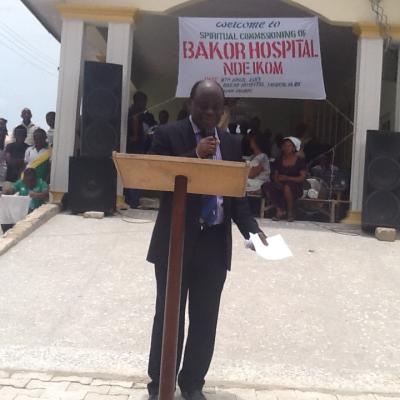A Professor of Medicine at the College of Medicine, Lagos State University, Prof. Anthonia Ogbera, has said that it is necessary to screen every pregnant woman for diabetes during their first antenatal visit, noting that it is crucial to the early detection of the disease.
Prof. Ogbera, who is also a Consultant Physician/Endocrinologist at the Lagos State University Teaching Hospital, Ikeja, warned that if gestational diabetes is not detected on time, it could lead to complications in pregnancy, including the pregnant woman’s risk of stroke and kidney problem.
Speaking in an interview with PUNCH HealthWise, the endocrinologist noted that many women in Nigeria are not aware of gestational diabetes and its associated risks.
Experts say gestational diabetes refers to diabetes diagnosed for the first time during pregnancy.
According to experts, gestational diabetes can pose serious health problems including pregnancy and delivery complications as well as increased future risk for diabetes in both mother and child.
Prof. Ogbera explained, “Four to 14 per cent of women in Nigeria have diabetes in pregnancy.
“Women at risk of developing diabetes in pregnancy are those that are obese, women with a family history of diabetes, and women living with hypertension.
“Others are women with diabetes in previous pregnancy and women who are getting pregnant above the age of 25.
“So, we advise that women who come for antenatal for the first time be screened for diabetes.”
The professor also urged pregnant women to embrace healthy living, while appealing to those with risk factors like hypertension to modify their lifestyle.
“Research has shown that with a healthy lifestyle, the risk of developing diabetes is lower. People should be physically active. Washing plates and cleaning the house do not translate to being physically active.
“Pregnant women should watch what they eat and consume more of the traditional foods.
“Healthy lifestyle is the way to go,” she said.
“Knowledge of gestational diabetes mellitus among pregnant women in a semiurban hospital – A cross -sectional study”, the authors said awareness about the effect of gestational diabetes on the neonate and the mother should be created to improve gestational diabetes screening, especially in non-graduates and those residing in rural areas.
Grass root level workers, the authors said, should be more involved in spreading awareness to all antenatal mothers from rural areas.
They said, “Abnormal levels of blood glucose in pregnant women can affect the immediate and long-term health of both mother and baby. Gestational diabetes affects two generations both the present and the next generation.
“Gestational diabetes is associated with increased risk of maternal and neonatal complications like preeclampsia, macrosomia, shoulder dystocia, birth injuries, increased risk of caesarean delivery, hypoglycemia, neonatal jaundice respiratory distress syndrome, polycythemia and hypocalcemia in newborn.
“Both gestational diabetes mother and her offspring are at risk of Type 2 Diabetes and obesity in future.
“There is a 50 percent risk of gestational diabetic mothers to develop overt diabetes within 20 years.”
They noted, “Thus, gestational diabetes screening will provide a perfect window of opportunity for the prevention of diabetes in two generations.
“Knowledge about gestational diabetes among antenatal women will facilitate implementation of a healthy lifestyle, better healthcare-seeking behaviour and thus prevention and early diagnosis of disease
SOURCE: HealthWise




